Phosphoric acid is widely used in industries such as chemical processing, metallurgy, and food production. As a highly corrosive liquid, the transportation of phosphoric acid imposes stringent requirements on the sealing performance of pumps. The choice of seal materials for phosphoric acid pumps is critical, as it directly affects the equipment's service life, operational safety, and maintenance costs. This article explores the key factors to consider when selecting seal materials for phosphoric acid pumps.
I. Chemical Properties of Phosphoric Acid
Before selecting seal materials, it is essential to understand the chemical properties of phosphoric acid:
Corrosiveness: Phosphoric acid is highly corrosive, especially at high temperatures and concentrations, affecting both metal and non-metal materials.
Viscosity: Phosphoric acid has high viscosity, which may cause wear and seal failure at the sealing points.
Temperature Influence: The corrosiveness of phosphoric acid increases with temperature, so the thermal resistance of the seal materials must be considered for high-temperature applications.
II. Common Seal Materials and Their Applicability
1. Polytetrafluoroethylene (PTFE)
Advantages:
Excellent Corrosion Resistance: PTFE can resist almost all chemicals, including concentrated phosphoric acid.
Wide Temperature Range: PTFE remains stable between -180°C and 260°C.
Disadvantages:
Low Mechanical Strength: PTFE has relatively low mechanical strength under high pressure and may need to be used in conjunction with other materials.
2. Ethylene Propylene Diene Monomer (EPDM)
Advantages:
Good Chemical Resistance: EPDM has good resistance to dilute phosphoric acid.
Cost-Effective: EPDM is relatively inexpensive compared to other high-performance materials.
Disadvantages:
Poor High-Temperature Performance: EPDM's resistance to corrosion decreases at high temperatures, making it unsuitable for hot phosphoric acid transport.
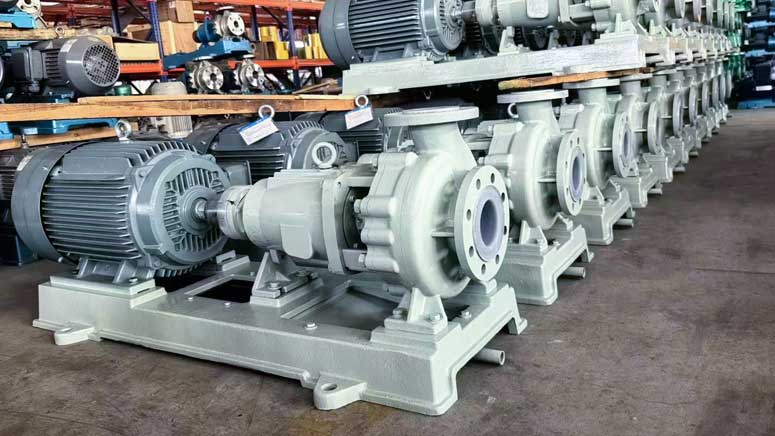
3. Fluoroelastomer (FKM/Viton)
Advantages:
Excellent Chemical Resistance: Fluoroelastomers have good resistance to concentrated phosphoric acid.
High-Temperature Resistance: Suitable for transporting hot phosphoric acid.
Disadvantages:
High Cost: Fluoroelastomers are expensive, increasing the overall equipment cost.
4. Graphite Packing
Advantages:
High Temperature Resistance: Graphite packing remains stable under high temperatures.
Corrosion Resistance: Effective resistance to phosphoric acid.
Disadvantages:
Complex Installation: Installation and maintenance of graphite packing are complex and require professional skills.
III. Key Considerations for Selecting Seal Materials
1. Corrosion Resistance
The seal material must be able to withstand the corrosive effects of phosphoric acid over the long term. Selection should be based on the concentration and operating temperature of the phosphoric acid to determine the required level of corrosion resistance.
2. Temperature Adaptability
Select the appropriate seal material according to the working temperature of the phosphoric acid. For high-temperature applications, materials such as fluoroelastomers or graphite packing are recommended.
3. Mechanical Strength
The seal material should have sufficient mechanical strength to withstand the pump's operating pressure. For high-pressure phosphoric acid pumps, composite materials or reinforced seal materials are advisable.
4. Ease of Installation and Maintenance
Seal materials that are easy to install and maintain can reduce downtime and maintenance costs. Materials like PTFE and EPDM are relatively simple to install and suitable for equipment requiring frequent maintenance.
5. Cost-Effectiveness
Choose cost-effective seal materials while ensuring performance. EPDM is a cost-effective choice for general conditions; for harsh conditions, fluoroelastomers or graphite packing are recommended.
Selecting seal materials for phosphoric acid pumps requires a comprehensive consideration of corrosion resistance, temperature adaptability, mechanical strength, ease of installation and maintenance, and cost-effectiveness. A well-chosen seal material can significantly extend equipment life, ensure operational safety, and reduce production costs. Anhui Tenglong Pump Valve Manufacturing Co., Ltd. offers a variety of high-quality seal material options for phosphoric acid pumps, meeting diverse customer needs and ensuring smooth chemical production.





 +86 18130251359
+86 18130251359 teflowpumps@tlpumps.com
teflowpumps@tlpumps.com

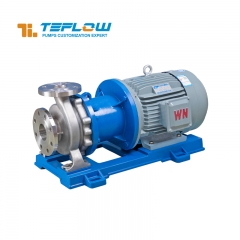
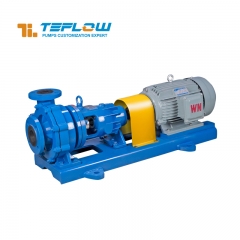
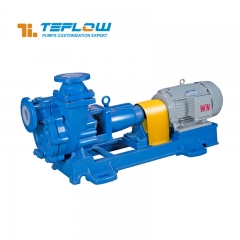
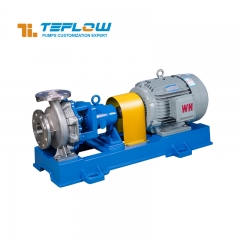








 +86+0563-5093318
+86+0563-5093318
